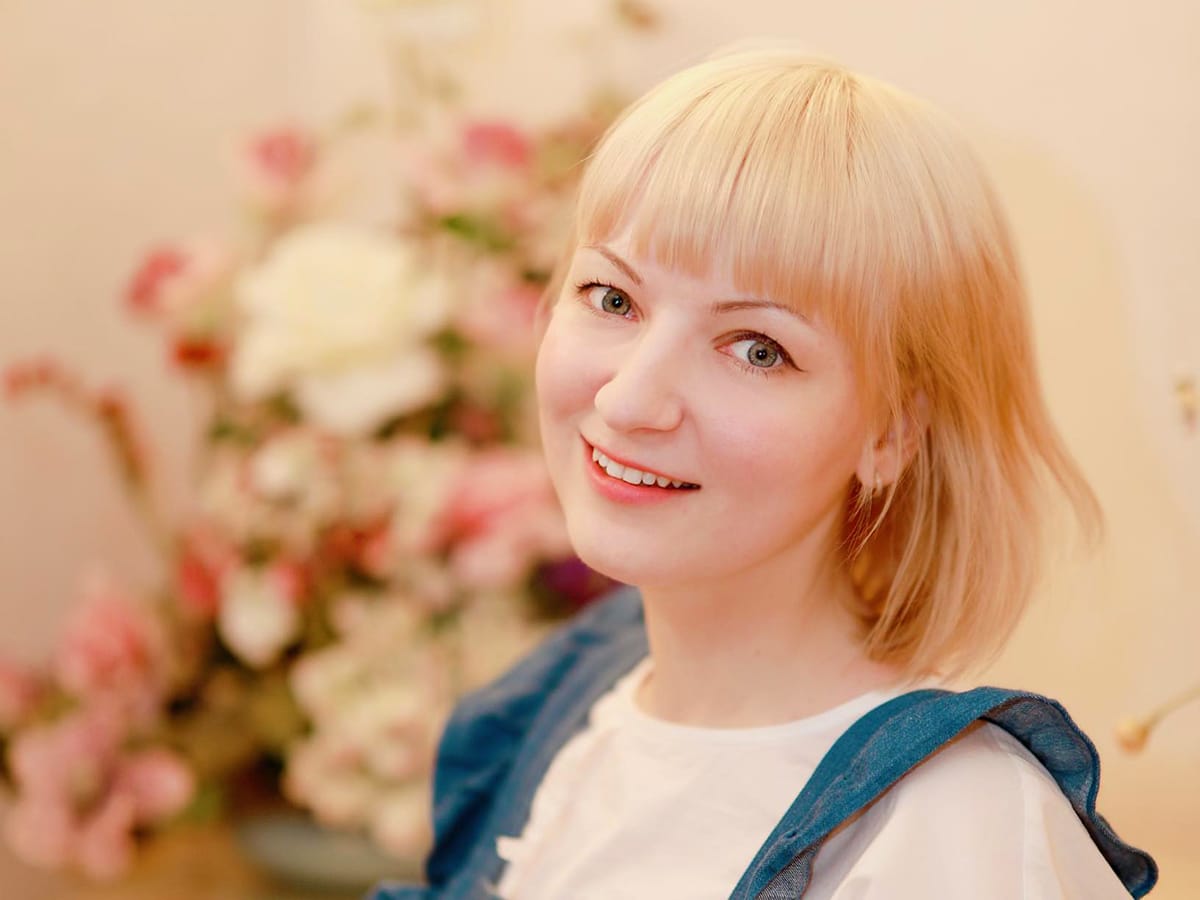
Used with permission from Jenya
Realizing a dream life in Japan: Interview with Jenya, professional voice actress and singer
- Tags:
- Dreams / Japanese language / Jenya / learning Japanese / living in Japan / singer / voice acting / voice actress
Related Article
-
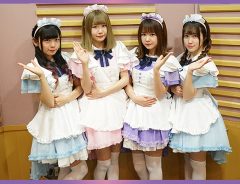
Japanese Voices: @17 no Gokitaku Shimasenka? #48: “Assebu Theater”
-
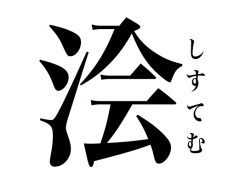
Even If You’ve Only Learned Katakana, You’ll Understand This Kanji
-

Design Cover Art With Japanese Fonts Like A Pro With These Tips
-
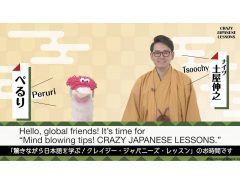
Fuji Television’s Int’l Dept. Launches a Japanese Language Course on YouTube for Global Viewers
-

Polite exchange on bus turns into epic battle in hilarious hand-drawn animated short
-
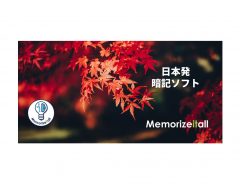
A former Danish diplomat released an efficient kanji memorizing software with more features!


Some of our readers may have dreams they want to realize in Japan. If you do, you'll surely find an excellent role model in Jenya ジェーニャ, a professional voice actress and singer from Russia.
Since she began living in Japan in 2005, Jenya has worked tirelessly in pursuit of her dreams. In addition to voicing roles and providing Russian language supervision for anime, she has appeared in TV shows and magazines and performed in musical concerts.
Currently, in the Fall 2022 anime season, she plays Zoya ゾーヤ in Akiba Maid War (アキバ冥土戦争 akiba meido sensō) and even sings the opening theme song for the anime.
We had the rare opportunity to interview Jenya and ask her about her life as a voice actress and singer and her tips for learning Japanese, among other things. She left us with a very important and touching message for those who have dreams they want to realize in Japan.
Interview
grape Japan (gJ): What is your daily routine as a professional voice actress in Japan?
Jenya: When I have recording work, both voice-over and singing, I do tongue twisters in Russian in the shower. The Russian language uses more muscles than Japanese, I think. I always act out the characters when I read books aloud to my daughter.
In addition to that, I have been taking vocal training lessons once a week for almost ten years.
For the Japanese language, I don’t do anything special. I use Japanese a lot and look it up when I can’t understand something.
Reproduced with permission from Jenya
gJ: You said that you practiced punching and kicking at home for the fight scene in the third episode of Akiba Maid War. Did you have any other special preparation for your other scenes?
Jenya: I wear clothes which fit the characters I voice. For the recording of Akiba Maid War, I chose cool fashion over cute maid clothing. That’s because in this case, Zoya is more of a cool character than a cute one. Also, Zoya yells and gets excited a lot, so I picked some clothing that’s easy to move around in.
To get in character, if it’s the first time, I can’t tell what's best until I start recording at the studio. First, I show what I prepared and if it’s ok, I keep doing that. If it’s not quite in line with what the director wants, we create it together on-site.
gJ: What kind of role do you want to try in the future? How do you want to expand your career outside of acting?
Jenya: Although I’d be happy to try any role, I really want to play a leading role. Only once would be enough to make me happy. If it comes true, I would say that I don’t have any regrets about my career as a voice actress.
Other than acting, I want to sing. I’ve continued my musical career for a long time and I’m having another concert this month.
Reproduced with permission from Jenya
gJ: Please give us your recommendation on ways of learning Japanese.
Jenya: When I was a beginner, I went to a Japanese language school once a week and watched a lot of anime. I also recorded my voice and reviewed it. That’s because I prioritized improving my speaking skills over reading and writing. I recorded myself both speaking normally and singing Japanese songs. I did this again and again in the beginning. Knowing what you sound like objectively is important.
About one year after I started living in Japan, I passed the N2 level of the Japanese Language Proficiency Test, and around six years later, I passed the top level, N1. I got a full score in the listening section on both tests. To prepare, I talked with Japanese native speakers a lot and asked them many questions. I don’t think I really sat down to study for those tests. I bought some books for N1, but I ended up not reading them at all! When I came across some grammar I didn't know, I looked it up online. That's how I did it.
The best study method, however, is the one you feel is fun! That's because motivation is the most important factor.
gJ: What do you find interesting about the Japanese language?
Jenya: As many Japanese learners say, onomatopoeia is fun. There are many similar-sounding onomatopoeic words, such as betabeta (ベタベタ | sticky, gooey, clinging), becha becha (ベチャベチャ | muddy), and betobeto (ベトベト | unpleasantly sticky). You can make yourself understood even though you used a different word from the one you wanted to say.
Other than that, this isn’t particularly interesting, but it’s something I struggled with: I really thought hard about mastering the different uses of ageru (あげる | to give someone something), kureru (くれる | someone kindly give something to you|) and morau (もらう | to receive something from someone).
It’s really complicated because I needed to think about the combinations of people’s positions and various situations. However, as I listened to the way these words are used in daily life and incorporated them into my speech, I just woke up one day and had a eureka moment. I was like “Oh, so that was the answer!” My body and my brain finished processing it and it just suddenly clicked.
I also had a hard time when I did simultaneous interpretation due to the structure of Japanese sentences. You can’t tell the conclusion and main message of a sentence until you listen all the way through. After a long string of words, the speaker can place a negative at the very end to flip the sentence's meaning, which left me wanting to say, “Oh no, wait a second!”
Reproduced with permission from Jenya
gJ: What are the important things you keep in mind when you work in Japanese society?
Jenya: It’s OK if your Japanese isn’t good enough. More importantly, you should be really careful not to step into people’s personal lives until you really get close to them. Of course, I know some people have opinions like: “If you get to know someone well, your teamwork will be stronger, and it will be good for your work." However, I still think that keeping a certain distance for a while is important.
Also, I’m always careful not to put anyone down. I don’t do anything that I don’t want people to do to me. To make everyone feel comfortable at the workplace, the most important words are “I’m sorry” and “Thank you.” If you can’t say them properly, people will think that you’re a very rude person, and that impression will never change. Always consider others first, not yourself. This is a really important thing to keep in mind in Japan.
gJ: Finally, do you have a message for those who are trying to pursue and realize their dreams in Japan?
Jenya: First of all, please research and learn about Japan well. After doing that and beginning your life in Japan, some of you might feel disappointed and that this country isn't for you. However, even if you feel that way, please don’t forget your original passion for Japan. I’ve already lived here for 17 years, but every day, I still feel happy that I came here.
From time to time, please reflect on why you came all the way to Japan. If your daily life is too busy and you're overwhelmed, you don’t have the capacity to dream, or rather, you don’t have time to find your dream. You may end up wondering “What am I doing here?”
If you lose sight of one dream, find another one. If you feel that new dream is also too difficult to realize, it’s OK. You can always change directions and find a different one to follow.
Please make many friends. We can’t do anything alone. In my case, I've been able to do many things because countless people have supported me. Thanks to such people, I could become “Jenya.” I really appreciate each and every one of them.
Get people involved to realize your dreams and do the same for them. I am fortunate to know reliable people who supported me and helped my dreams come true. People around you will notice your efforts more than you think. Someday, someone will help you to realize your dreams. I can also help them and return the favor.
Life can be tough, but I want to enjoy my life fully until I'm 100 years old! I hope you can enjoy your life too. Some of you may think “Going to Japan is too scary!” but as long as you remain afraid like that, you won't be able to start anything. Courage is important to take your first step forward, so go for it!
Reproduced with permission from Jenya
About Jenya
Born in Novosibirsk, Russia, Jenya is a professional voice actress, singer, and radio personality based in Japan. She has covered over 100 anime songs online since starting in 2002. She moved to Japan in 2015 with the dream of becoming a voice actress.
She made her debut voicing an operator in the NERV Betania base in Evangelion: 2.0 You Can (Not) Advance (ヱヴァンゲリヲン新劇場版: 破). She translated Russian and provided coaching in Russian for the film as well, a role she also played in anime such as Little Busters and Black Lagoon. She voiced the role of Viola in Last Exile - Fam, the Silver Wing and had a major role as Klara in three Girls und Panzer (ガールズ&パンツァー 劇場版) films.
This season in Fall 2022, she voices her first main role as Zoya in Akiba Maid War (アキバ冥途戦争), in which she also sings the opening theme.
In addition to anime, she has appeared in educational programs and variety shows on Japanese television and is active as a singer.
---
Jenya will be performing this coming November 28th and December 5th, 2022 at the Anison Park Week event.
Reproduced with permission from Jenya
Links